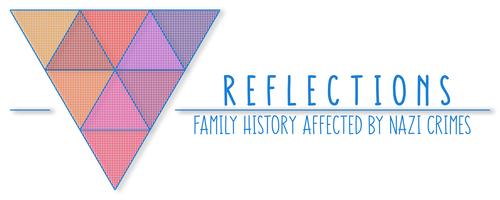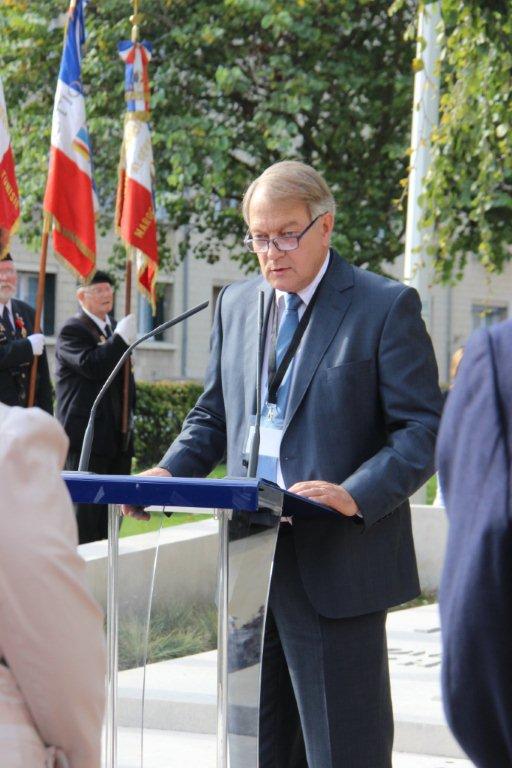There is no hatred felt by the descendants of the victims toward the descendants of the perpetrators
Jean-Michel Clère, grandson of Robert Clère who died in Sandbostel on May 18, 1945, and president of the Amicale de Neuengamme et de ses Kommandos, participated in the workshop „Dialogue between the descendants of former concentration camp prisoners and the descendants of Nazi perpetrators“ during the Forum „Future of Remembrance“ held at the Neuengamme Concentration Camp Memorial on May 6, 2015. Here are his answers to some questions I asked him about some of the main themes covered during the workshop discussions.
How did you learn about what happened to your father or grand-father ?

Jean-Michel Clère, the President of the Amicale, in Caen in 2014. © Amicale française 2014.
My grand-father, Commandant Clère, died in Sandbostel on May 18th 1945. So, it was my father who told us about his history.
How did you manage (or not) to overcome the consequences of the perpetrators‘ deeds?
It is easy to get confused and quickly mix up parents and children. One could say: “Like father, like son”. We would be all the more tempted to use this medley as filial love would entice those children (the perpetrators’ children) into riding their parents’ opinions, even if they are mistaken. It’s much easier not to have this misunderstanding if the children have understood that their parents’ errors were not their own errors.
Then, it is also fundamental to acknowledge that the message delivered by the main political authorities plays an important part. This happened when Chancellor K. Adenauer and General de Gaulle acted for the reconciliation between France and Germany in 1962.
Finally, it also works with the circumstances of life which sometimes give us the opportunity to hold out one’s hand to someone who belongs to that nation we were at war with and we must be able to hold out our hand. It does not mean in any way that we forget, it does not mean that we betray our family. It means that, in our modest way, we lay our personal brick to build a better future for all.
What will you pass on to your children?
The answer to this question is partly in the answer to the previous question. It’s important not to hide the painful sides of our story but to know how to share them with our children, for a better future. And that future should be a future of peace and building Europe. You must always be ready to :
– Using a policy for reducing tensions between men;
– Ensure a coercion to crush fascism;
– Fight, by all means, against States or groups who do not respect others;
To say it shortly, you have to be both courageous and clever, qualities which may sometimes be paradoxical.
What do you expect, or fear, from a dialogue between families of victims and families of perpetrators?
There is nothing to be feared from a dialogue between descendants. One must mainly stick to proclaiming that there is no hatred on the part of the victims’ descendants towards the perpetrators’ descendants. There is no forgiving either, as the perpetrators’ descendants are not perpetrators themselves. We are here to build up a future which could be the best for everyone.
I wish this dialogue may reassure the perpetrators’ descendants : there is only love for them.

